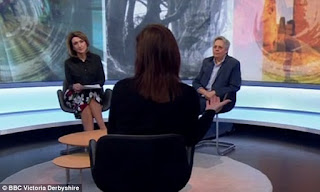 |
| Photo: UNHCR |
|
Sixty-five million people are displaced in the world today. Many of them are in camps, unable to move on.
Every three seconds some one else has to leave their home to flee war, climate change, famine, violence.
This poem was first published on the
poetry24 website (link below). I was prompted to re-post the poem here after seeing Ai WeiWei's stunning film
Human Flow, which draws on the same statistics I use, as calculated by UNHCR - http://www.unhcr.org/uk/
Statistics of hope
Count to three: one two three, there’s another
one two three, and another displaced person,
one every three seconds, somewhere in the world.
One two three. In Chad a woman travels in a cart
30km to a mobile clinic, collapses 300m short.
A doctor checks Bless, a seven month old girl,
suspected malaria. One two three.
In Tripoli: women are detained, 30 in a small room,
one blanket each, they’ve been there months,
it may become years; no access to law, no medical care.
Fifty-eight refugees adrift in the Med in one small boat.
412 rescued from the water, escaping
Pakistan, Nepal, Bangladesh.
One two three: one little boy sits alone
on a floor in a corridor in a former resort in Greece,
now used for refugees needing mental health care.
In Nairobi 400 people each month arrive at one clinic.
In Nigeria 45,000 refugees pack one camp
for displaced people from Cameroon.
One two three. Gloria, aged 11 years,
displaced in Malawi, HIV and TB positive.
8,000 in a camp near Raqqa, Syria,
there for months, years.
Hundreds of thousands from Myanmar
seek shelter from the monsoon in
rice fields in Bangladesh.
They wait for permission to move, drowning in hope.
One in every 113 people on the planet is a refugee.
Someone is displaced every three seconds.
One two three. 65million displaced people
in the world, now,
one two three
Debora Njala, 18, HIV and TB positive, in Malawi, says:
“I will achieve my dreams and the future is bright.”
One two three. A man, a woman, two children
in a camp in Lesvos, not allowed
to leave for mainland Europe.
The father, Karon says:
“It is my true dream that my children will live
in a country without war, without bloodshed.
This is the only thing I wish for.”
All it takes is the will of the developed world …
one two three …
*
In the time it takes to read this
poem 100 people in the world will have become displaced.
Here's a recording of me reading this poem:
https://vocaroo.com/i/s1r22jQsGbMK
If you want to read more poetry that is inspired by current news events
poetry24 is one of the places to go. Read more here: http://www.poetry24.co.uk/







